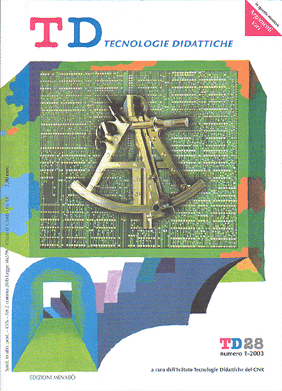Educational software and difficulties in mathematics
Main Article Content
Abstract
Considerations on the use of educational software as an aid to observe and comprenderele difficulties' learning in logicomatematica.
Article Details
Section
Articles - Special Issue
Authors who publish with this journal agree to the following terms:
- Authors retain copyright and grant the journal right of first publication with the work simultaneously licensed under a Creative Commons CC BY 4.0 Attribution 4.0 International License.
- Authors are able to enter into separate, additional contractual arrangements for the non-exclusive distribution of the journal's published version of the work (e.g., post it to an institutional repository or publish it in a book), with an acknowledgement of its initial publication in this journal.
- Authors are permitted and encouraged to post their work online (e.g., in institutional repositories or on their website) prior to and during the submission process, as it can lead to productive exchanges, as well as earlier and greater citation of published work (See The Effect of Open Access)
References
AA.VV. (1998), Tools for Living with Learning Disabilities, CCLPCoordinated Campaign for Learning Disabilities, http://www. ldonline.org/ld_indepth/ technology/tools.html
AA.VV. (2000), Dossier SVITA, TD - Tecnologie Didattiche, vol. 24, n. 3, pp.4-25.
Dettori G., Ott M. (2001), Accessible software for early maths education: focusing on content, strategies, interface, in 9th Intern. Conf. on Human-Computer Interaction, vol. 3, Universal Access in HCI, New Orleans, pp. 798-802.
Dowker A. (1998), Individual differences in normal arithmetical development, in C. Donlan (ed.) The development of Mathematical Skills, Psychology Press, pp.275-302.

